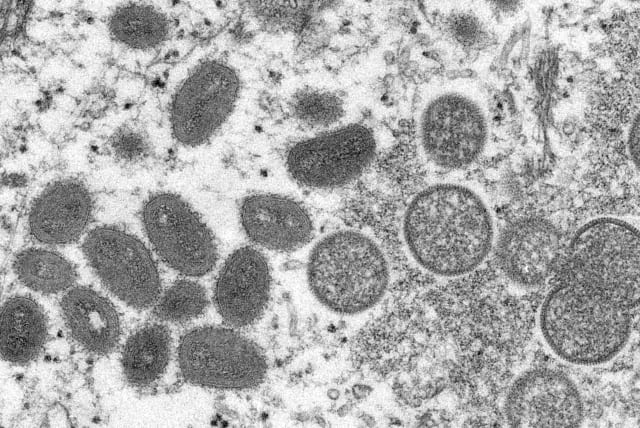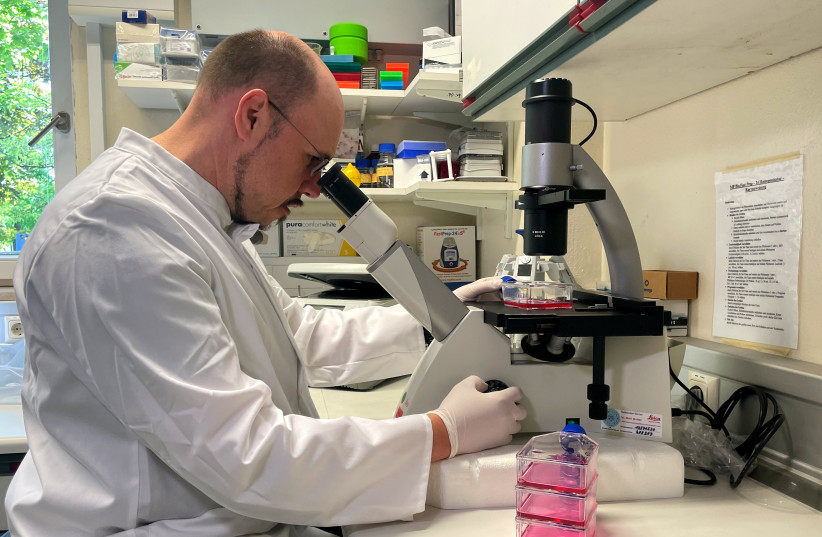First comprehensive study on monkeypox vaccine efficacy conducted in Israel

Researchers in Israel tested the effectiveness of giving a single dose of the vaccine to prevent cases of symptomatic monkeypox infection.
There has been an 86% reduction in risk of monkeypox infection in high-risk populations in Israel – mainly homosexuals – who have been vaccinated, compared to non-vaccinated people.
This was the first and most comprehensive study published so far, which tested the effectiveness of giving a single dose of the monkeypox vaccine in preventing cases of symptomatic infection.
The team of researchers analyzed with advanced statistical methods the data of Clalit Health Services patients who were defined as having a high risk of contracting monkeypox and were eligible to receive a vaccine dose, in accordance with the criteria established by the Health Ministry. The study, just published in the prestigious journal Nature Medicine under the title “Real-world effectiveness of a single dose of mpox vaccine in males,” showed that among the recipients of the single dose of the vaccine, the impressive reduction in the monkeypox infection rate was observed, compared to the unvaccinated group.
The study was a collaboration between the health fund’s community division and the general planning and strategy division. The findings were presented by the researchers at an international research forum of the WHO as well as the US Center for Disease Control and Prevention (CDC).
Monkeypox belongs to the family of viruses that previously caused smallpox, although monkeypox is less virulent than smallpox. The main way of infection in the current outbreak is from person to person, mainly through sexual intercourse but also through direct contact with the rash and bodily fluids. The current wave of monkeypox infection that began in May 2022 was defined by the World Health Organization (WHO) a month later as an emergency that could harm public health, which justified a worldwide vaccination campaign for populations at high risk of infection. As of this past January 25th, over 85,000 cases in the world have been verified and 86 people have died. In Israel, 262 cases have been recorded and none died.
Israeli monkeypox vaccination campaign
In Israel, a vaccination operation began at the end of July 2022 to prevent infection among the at-risk population. It is a live attenuated vaccine, which includes viruses that are unable to multiply, cannot infect the environment and can also be given to immunosuppressed people. Due to a global shortage of vaccines, the vaccine is first given to the population that is at the highest risk of contracting and spreading the disease. The criteria for eligibility for vaccination were defined by the ministry in cooperation with Clalit, based on the findings of a preliminary study by the team of researchers who identified the main risk factors for monkeypox morbidity prior to the start of the vaccination campaign.
The researchers reviewed data from 2,054 Clalit patients who were eligible to receive the vaccine, with an average age of 34. At the end of the study period, half of them received the monkeypox vaccine.
According to Dr. Roy Zucker, director of the field of LGBT medicine at the public health fund and a specialist in infectious diseases, “we led the fight against monkeypox in Israel. Thanks to our research capabilities, which are a combination of clinical content experts with research personnel, Clalit is the first to scientifically prove the benefits of the vaccine to monkeypox, and unequivocally.”
According to Dr. Yael Wolff, director of the Research and information department in the planning and strategy department, “our preliminary research to identify the risk factors for monkeypox morbidity had a direct and real-time effect on the eligibility criteria for vaccination defined by the ministry, thereby contributing to the success of the vaccination campaign and ultimately also for a decrease in morbidity.”
In its vaccination campaign, Clalit increased its outreach efforts regarding careful sexual behavior and ways to avoid infection among the LGBT community. “The observed decrease in morbidity, which results from both the vaccination campaign and the results of the information campaign, best expresses our commitment to health for all its patients,” Wolff concluded.
Jerusalem Post Store
`; document.getElementById("linkPremium").innerHTML = cont; var divWithLink = document.getElementById("premium-link"); if (divWithLink !== null && divWithLink !== 'undefined') { divWithLink.style.border = "solid 1px #cb0f3e"; divWithLink.style.textAlign = "center"; divWithLink.style.marginBottom = "15px"; divWithLink.style.marginTop = "15px"; divWithLink.style.width = "100%"; divWithLink.style.backgroundColor = "#122952"; divWithLink.style.color = "#ffffff"; divWithLink.style.lineHeight = "1.5"; } } (function (v, i) { });

